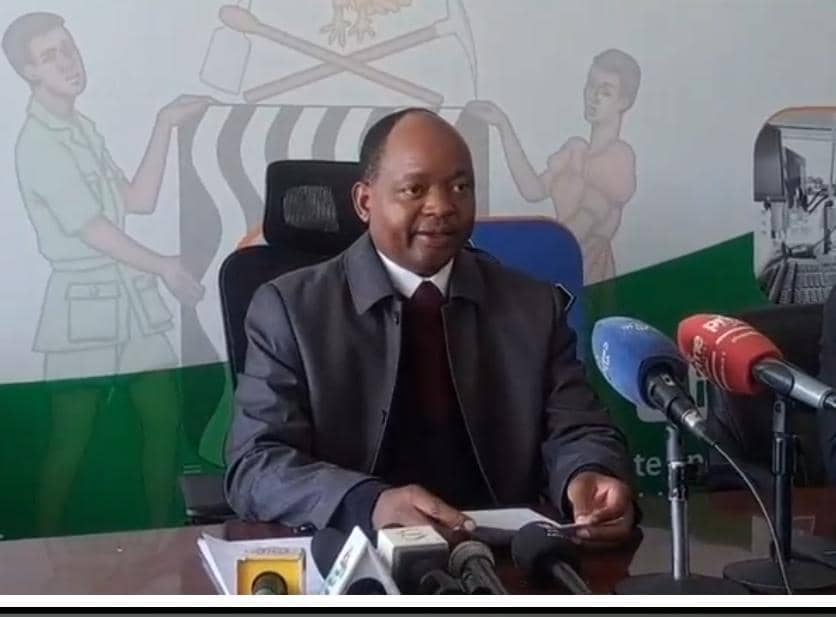Zambia Targets Investor Confidence

Mweeywa says New measures aim to restore trust in Zambia’s economic and regulatory framework.
By Francis Maingaila
Lusaka, Zambia24 - July 30, 2025 — The Zambian government has approved a 12-month extension request for the International Monetary Fund (IMF) Extended Credit Facility (ECF), aiming to solidify economic reforms, complete the ongoing debt restructuring process, and build market and investor confidence.
Chief Government Spokesperson Cornelius Mweetwa said in a post-Cabinet briefing that the decision to seek an extension until October 31, 2026, is intended to preserve macroeconomic stability and ensure Zambia remains aligned with the IMF-supported reform programme.
He explained that the IMF has already reviewed the country’s request and an official decision is expected after the Fund's Executive Board meets in the coming weeks.
Mweetwa noted that the 14th Cabinet Meeting, chaired by President Hakainde Hichilema, was convened to consider critical economic and developmental matters that would shape the nation’s policy direction.
He stated that the Cabinet strongly supported the extension of the IMF programme to enable the country to consolidate the progress made so far under the economic transformation agenda.
“The extension will give Zambia more time to implement the planned reforms while completing ongoing debt restructuring efforts and stabilising the country’s financial environment,” Mweetwa said.
He stressed that Cabinet recognised the need to restore fiscal credibility and prudence, given that the country’s public debt situation had worsened under the previous administration due to reckless borrowing and lack of oversight.
Mweetwa recalled that between 2015 and 2021, domestic debt increased by more than 680%, while external debt more than tripled, leading Zambia into default in 2020.
He said the current government has since enacted the Public Debt Management Act No. 15 of 2022 to ensure transparency, accountability, and proper oversight in public borrowing and debt management.
In line with its broader economic agenda, the Cabinet also approved the recapitalisation of the Zambia National Building Society (ZNBS) through the issuance of 184,015,416 Class A shares to the public and strategic investors. Mweetwa said the move is intended to expand access to affordable mortgage financing and improve housing availability for Zambians.
Additionally, the Cabinet approved the appointment of a new board of directors for the Zambia Institute of Diplomacy and International Studies (ZIDIS), as well as the development of a National Museums Policy aimed at preserving and promoting Zambia’s cultural heritage and history.
Cabinet further ratified the 2019 Memorandum of Understanding (MoU) on the North-South Corridor Programme signed between Zambia, Botswana, Zimbabwe, and the Democratic Republic of Congo. The agreement is expected to facilitate regional integration and trade.
Mweetwa said Cabinet also adopted the Micro, Small, and Medium Enterprises Development Policy and Bill, designed to provide a clear legal framework for supporting and regulating the growth of MSMEs in Zambia.
To enhance road safety and reduce accidents, especially involving public service vehicles, Cabinet approved the implementation of regulations requiring the installation and monitoring of Global Positioning Systems (GPS) in all such vehicles.
Cabinet also approved the Insurance Bill, 2024, which seeks to repeal and replace the Insurance Act No. 27 of 1997.
The proposed bill aims to promote financial inclusion, enhance consumer protection, and align Zambia’s insurance regulations with international standards.
Mweetwa added that Cabinet further approved the hosting of the 13th Ordinary Meeting of the Council of Ministers of the Lake Tanganyika Authority (LTA) in October 2024 in Zambia.
The LTA is a regional initiative involving Burundi, Tanzania, the Democratic Republic of Congo, and Zambia to promote the sustainable management of Lake Tanganyika.
In labour and social protection matters, the Cabinet approved recommendations from the International Labour Organisation (ILO) Decent Work Country Programme Review, which aims to promote formalisation of informal work, decent employment opportunities, social protection, and effective labour governance.
Cabinet also appointed a new Chairperson for the Compensation Fund Committee under the Workers’ Compensation Fund Control Board, which ensures benefits for workers injured in the course of employment.
Mweetwa said these decisions reflect the government’s unwavering commitment to restoring Zambia’s economic credibility, enhancing governance structures, promoting inclusive development, and rebuilding investor confidence.



Comments
Post a Comment